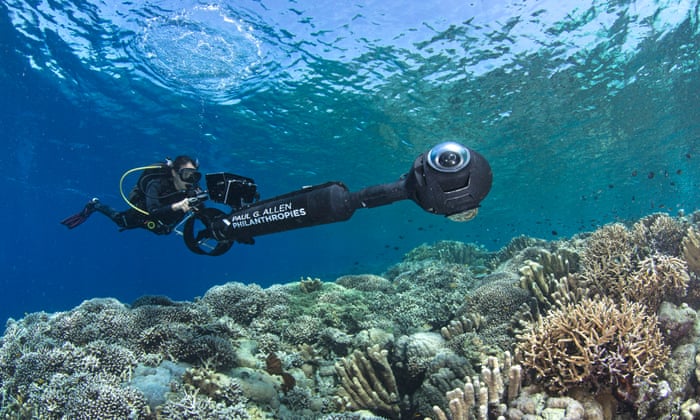A recent scientific survey off the coast of Sulawesi Island in Indonesia suggests that some shallow water corals may be less vulnerable to global warming than previously thought.
But the June survey, funded by Microsoft co-founder Paul Allen’s family foundation, found the Sulawesi reefs were surprisingly healthy.
In fact the reefs hadn’t appeared to decline significantly in condition than when they were originally surveyed in 2014 - a surprise for British scientist Dr Emma Kennedy, who led the research team from the U.K., U.S., Australia, Indonesia and Trinidad.
“After several depressing years as a coral reef scientist, witnessing the worst-ever global coral bleaching event, it is unbelievably encouraging to experience reefs such as these,” she said to The Guardian.

“It means we still have time to save some coral reefs through the science-based targeting of conservation action.”
Indonesia is situated in the heart of the Coral Triangle - home to the greatest levels of marine biodiversity on the planet. There are reefs here that contain more species than the entire Caribbean, which is why the bioregion is of particular interest to scientists looking into reef resilience.
A combination of 360-degree imaging tech and Artificial Intelligence (AI) allowed scientists to gather and analyse more than 56,000 images of shallow water reefs.
Over the course of a six-week voyage, the team deployed underwater scooters fitted with 360 degree cameras that allowed them to photograph up to 1.5 miles of reef per dive, covering a total of 1487 square miles in total.

Researchers at the University of Queensland in Australia then used cutting edge AI software to handle the normally laborious process of identifying and cataloguing the reef imagery.
Using the latest Deep Learning tech, they ‘taught’ the AI how to detect patterns in the complex contours and textures of the reef imagery and thus recognise different types of coral and other reef invertebrates.
Once the AI had shown between 400 and 600 images, it was able to process images autonomously.
Says Dr Kennedy, “the use of AI to rapidly analyse photographs of coral has vastly improved the efficiency of what we do — what would take a coral reef scientist 10 to 15 minutes now takes the machine a few seconds.”

The Sulawesi research is part of the 50 Reefs Initiative, one of the key projects focused on gathering and analysing baseline data, established last year with support from Bloomberg Philanthropies, the Tiffany Co. Foundation and Paul G Allen Philanthropies
BBC Focus reports that the study of these heat-resistant reefs has given researchers hope that some coral might survive the damaging effects of human-induced climate change, and could replenish adversely affected reefs if we manage to stabilise ocean temperatures in the future.
The findings of the Sulawesi survey will help scientists and conservationists target coral conservation programmes elsewhere in the world. With perhaps three decades left to rescue a vital global ecosystem from extinction, it is progress that’s sorely needed.


















